Go beyond the scoreboard
Get the latest on L.A.'s teams in the daily Sports Report newsletter.
You may occasionally receive promotional content from the Los Angeles Times.
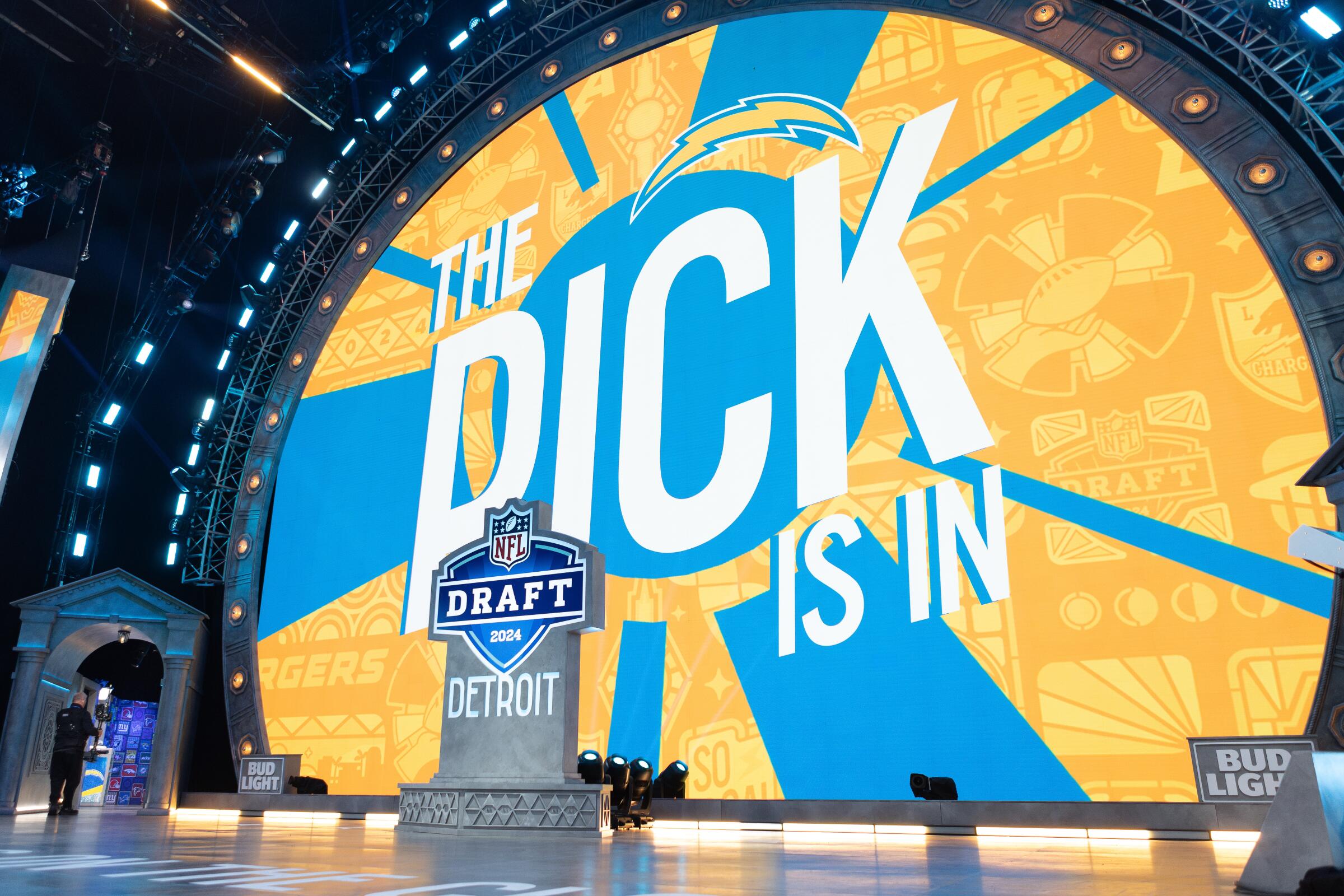
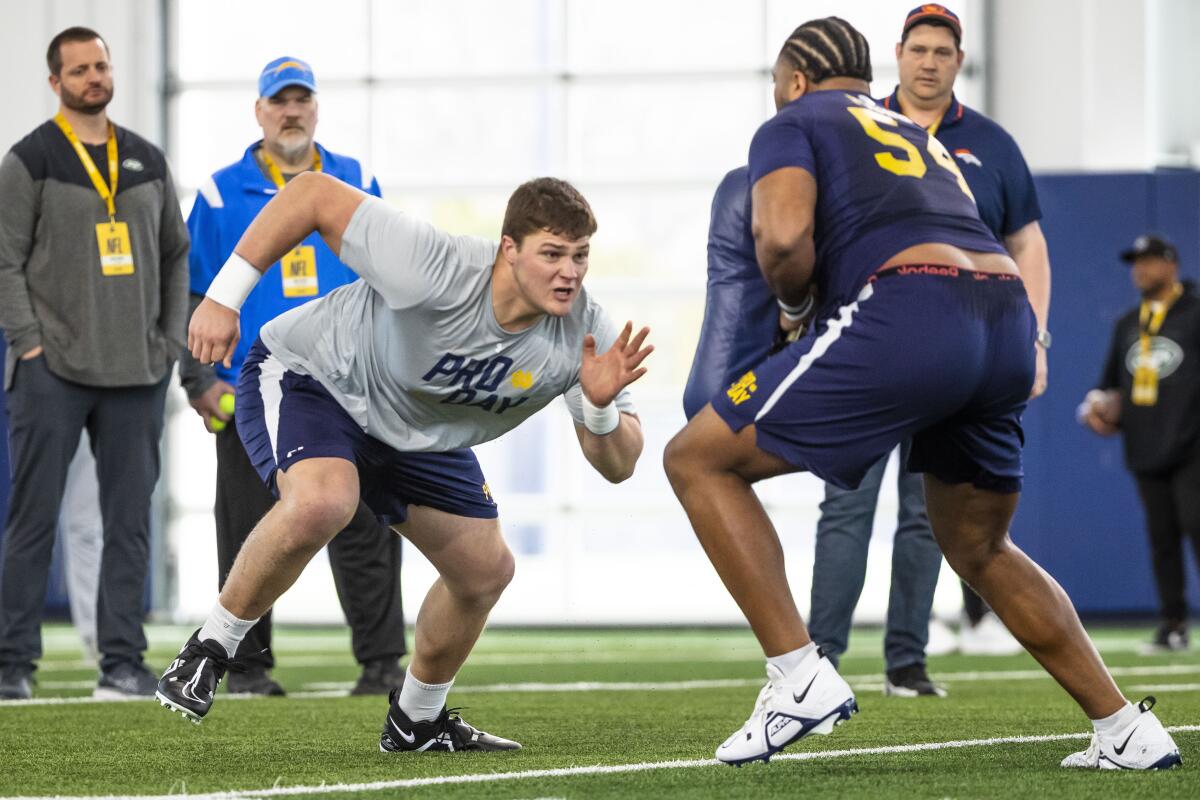
6-9, 321 pounds, Notre Dame, Round 1, Pick 5
Notable: His father, John, was an offensive lineman at Iowa and a first-round pick of Kansas City in 1984 before earning two Pro Bowl selections. Alt’s brother, Mark, played hockey at Minnesota and in the NHL, including a brief stint with the Kings in 2020-21.
Last season: Alt was a finalist for the Outland Trophy and Lombardi Award while starting 12 games at left tackle. He also was a first-team All-American.
Why the Chargers drafted him: Since the day was he hired, coach Jim Harbaugh has preached his desire to turn the Chargers into a more physical, line-of-scrimmage team, which means beefing up the offensive front. Alt gives the Chargers an enormous presence up front in the run game and in protecting quarterback Justin Herbert. He played on the left side for the Fighting Irish but is expected to move to the right and replace Trey Pipkins III, who struggled with consistency last season. The Chargers have Pro Bowler Rashawn Slater at left tackle.
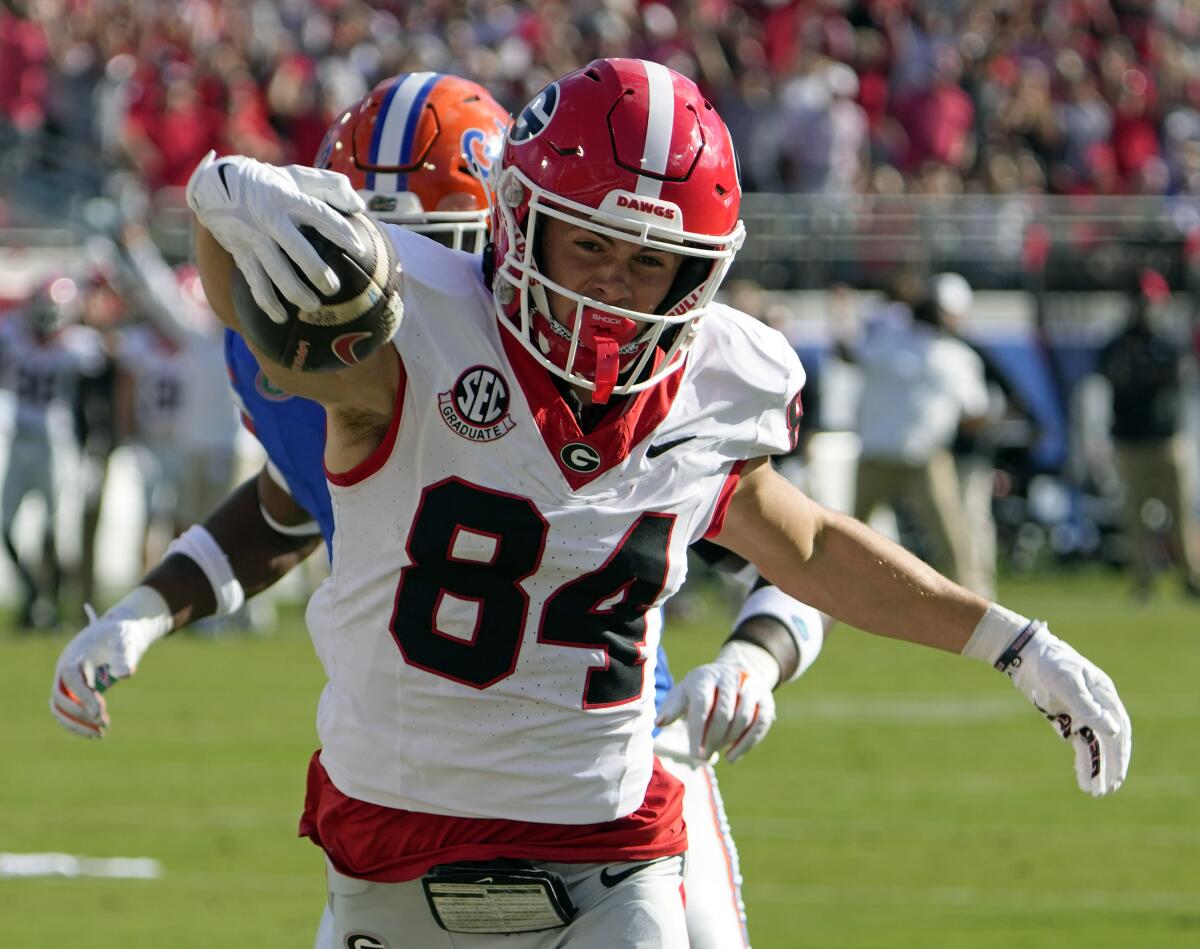
6 feet, 186 pounds, Georgia, Round 2, Pick 34
Notable: In 2023, McConkey won the Wuerffel Trophy for community service and was a finalist for the William V. Campbell Trophy, which is known as “the Academic Heisman.” He also was named to the AFCA Allstate Good Works Team for his community service work.
Last season: He appeared in nine games with one start, finishing with 30 catches for 478 yards and two touchdowns. McConkey sat out the start of the season because of a back injury and also hurt his ankle late in the season.
Why the Chargers drafted him: After trading Allen and releasing Williams in March because of salary-cap issues, the Chargers had a significant need at wide receiver. Somewhat undersized, McConkey is known for his quickness off the line of scrimmage and open-field speed. He ran a 4.39-second 40 at the combine. His potential was enough that the Chargers traded with New England to move up three spots in the second round to draft him.
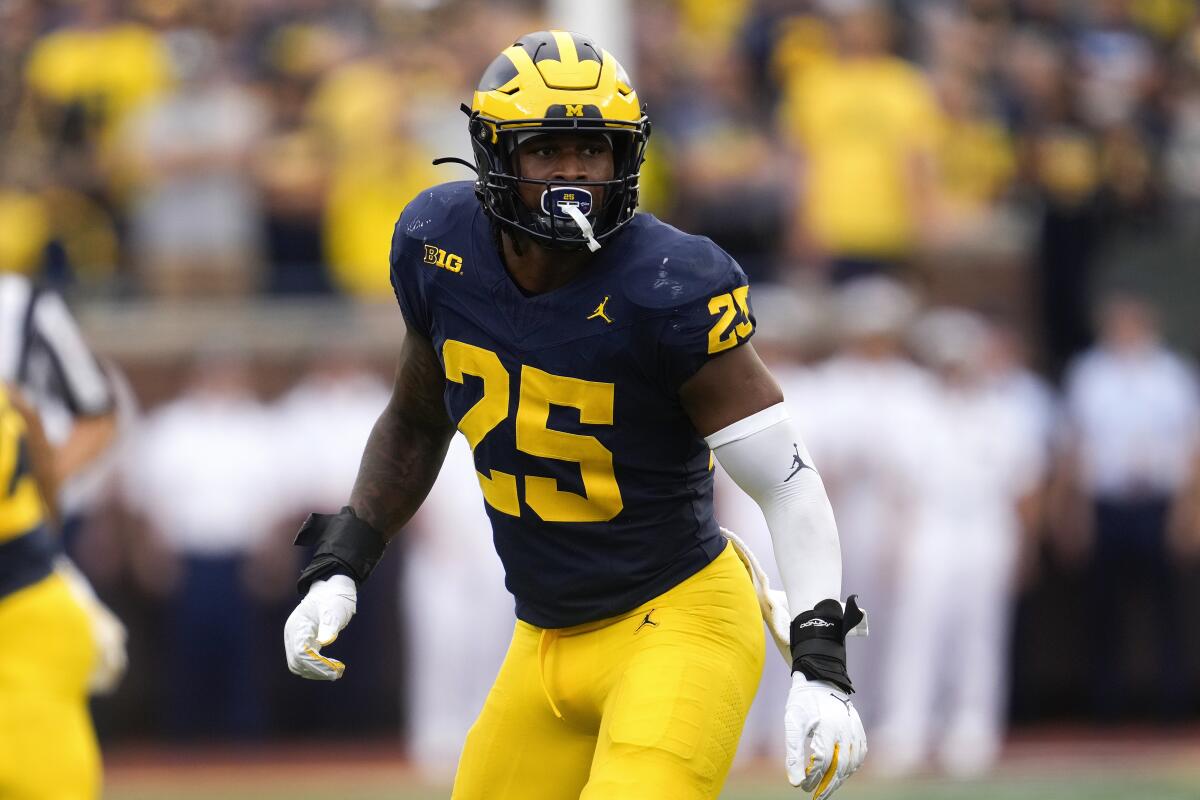
6 feet 2, 238 pounds, Michigan, Round 3, Pick 69
Notable: He spent the first nine years of his life in Haiti and entered an orphanage after his father died. He was adopted in 2012 by the Colson family, which spent time in Haiti to help rebuild after a devastating earthquake in 2010.
Last season: Colson led the national champion Wolverines with 95 tackles as a 15-game starter. He also won the Lott IMPACT Trophy.
Why the Chargers drafted him: The team allowed both of its 2023 starting inside linebackers — Kenneth Murray Jr. and Eric Kendricks — to depart in free agency. The Chargers replaced one by bringing back Denzel Perryman but there‘s a need to fill the other spot. Now, with Colson, the Chargers have a linebacker group that includes veterans Nick Niemann and Troy Dye and second-year player Daiyan Henley. Colson is quite familiar to the new Chargers regime headed by Jim Harbaugh.
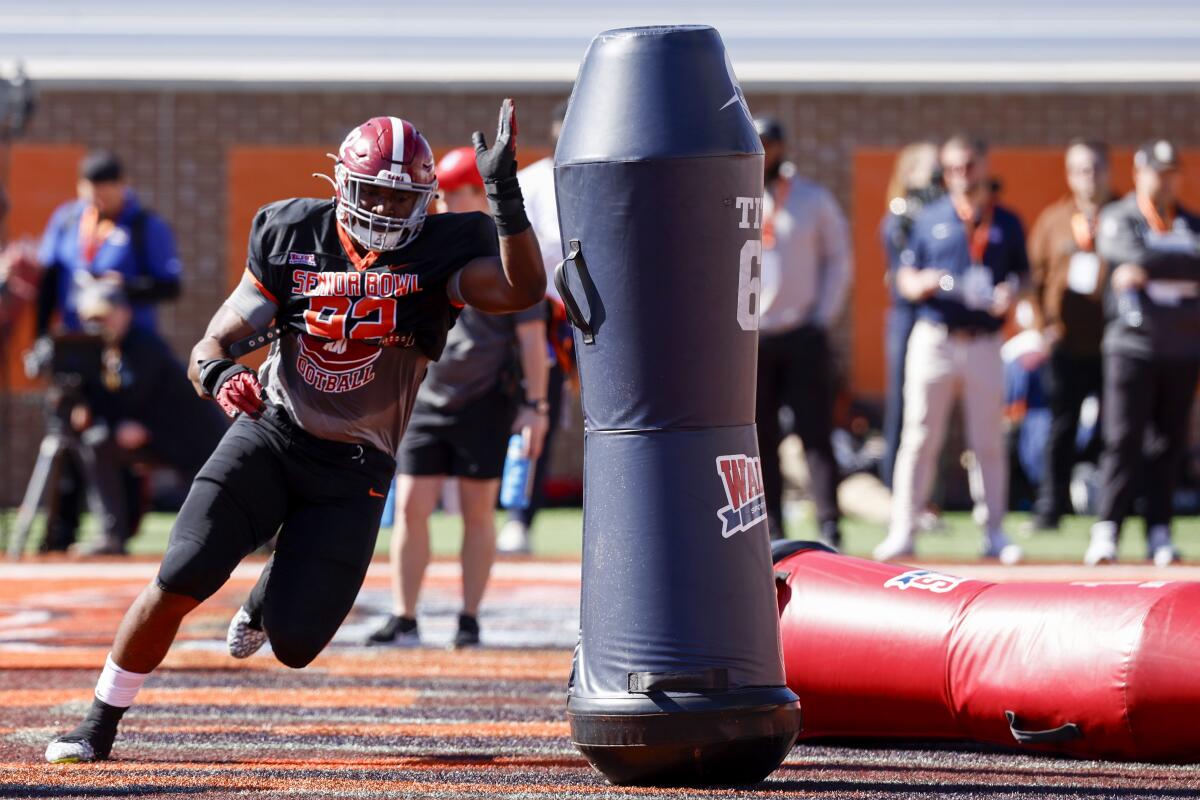
6 feet 4, 297 pounds, Alabama, Round 4, Pick 105
Notable: He had a rough 2022, losing his brother, Trey Larenz Earl, and suffering a significant neck injury that ended his season after four games. Eboigbe said he never considered not coming back and rebounded to have his best season during his final year with the Crimson Tide.
Last season: Eboigbe had 63 tackles, including 11½ for lost yardage, and seven sacks in 14 games for Alabama, earning first-team All-SEC honors.
Why the Chargers drafted him: The Chargers began Saturday facing depth issues at multiple spots, and defensive line was at the top of the list. Eboigbe offers production and versatility as the Chargers look to replace 2023 contributors Austin Johnson and Nick Williams. They also released starter Sebastian Joseph-Day late last season.
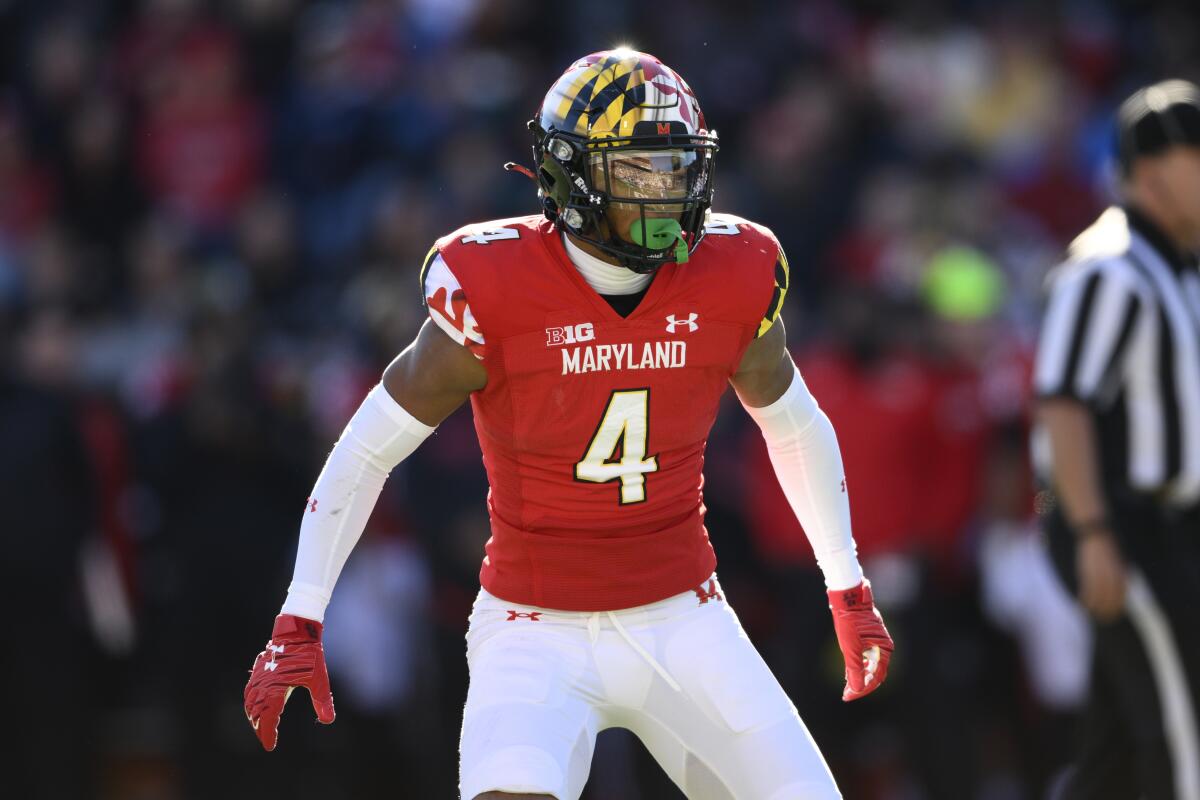
6 feet, 189 pounds, Maryland, Round 5, Pick 137
Notable: He has brothers named Sabreeah, Ishaaq, Suhaila and Lubanah. His calls Deion Sanders his sports hero.
Last season: Still tied for sixth in FBS with five interceptions while picking up second-team All-Big Ten accolades. He started 10 games and finished with 45 tackles and two pass breakups.
Why the Chargers drafted him: After Asante Samuel Jr., the Chargers lack a cornerback who has proven production in the NFL. Still’s 2023 interception total fits the Chargers’ mold of wanting corners who can make plays on the ball. After Samuel, there’s a lot of uncertainty and more promise than production with players such as Deane Leonard, Ja’Sir Taylor and Kristian Fulton.
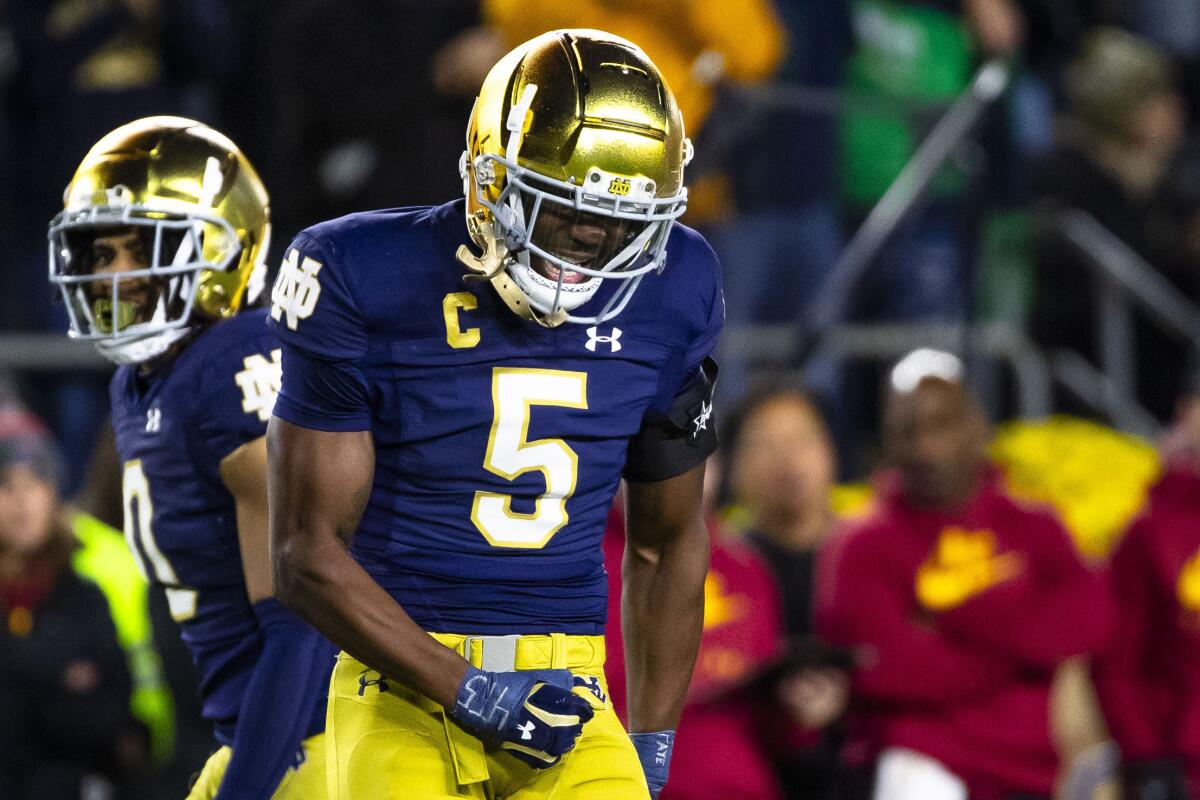
6 feet 3, 202 pounds, Notre Dame, Round 5, Pick 140
Notable: He was a nationally regarded wide receiver coming out of high school in Maryland before becoming a full-time defensive back with the Fighting Irish.
Last season: Hart started 12 games, finishing with 21 tackles — including three for lost yardage — and four pass breakups.
Why the Chargers drafted him: With two selections in the span of four picks, the Chargers doubled down on cornerbacks. Hart has impressive size and is considered a freakish athlete, two things that no doubt impressed the Chargers as they searched for potential contributors to build secondary depth.
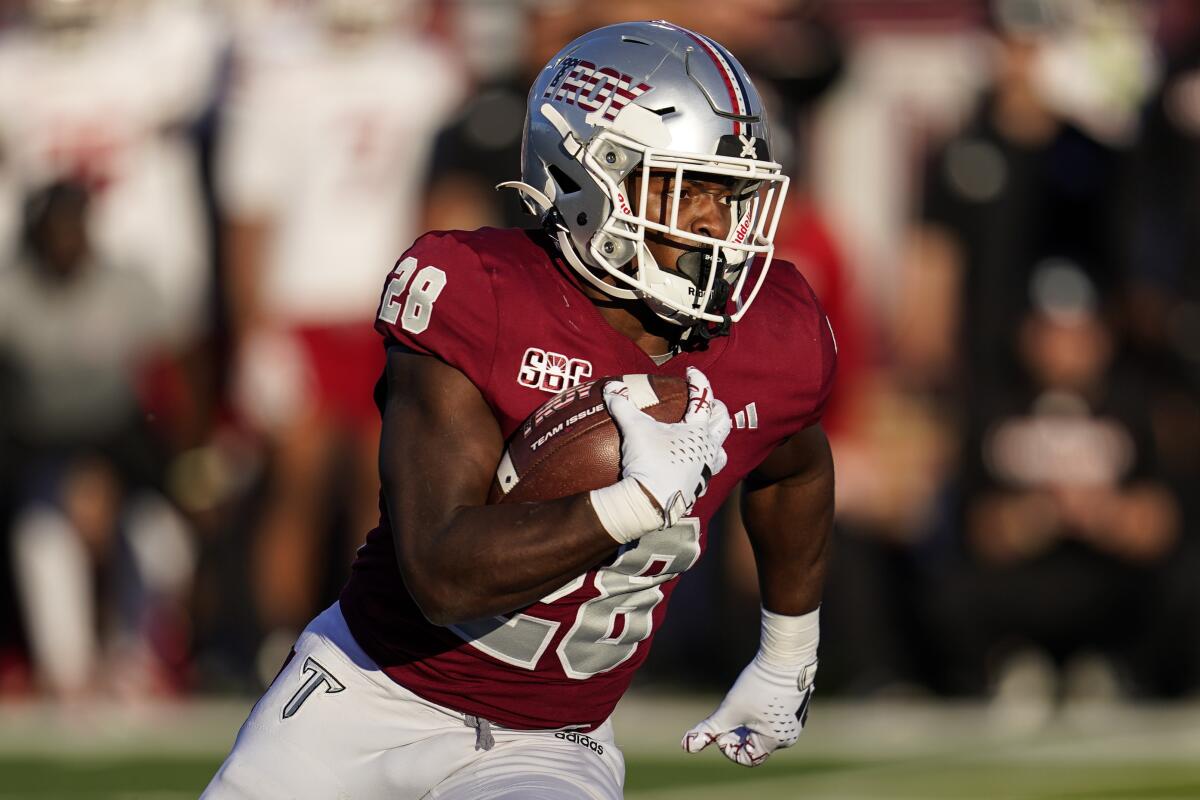
5 feet 8, 213 pounds, Troy, Round 6, Pick 181
Notable: His father was a running back at Florida A&M in the early 1990s. Vidal also is the great nephew of baseball Hall of Famer Hank Aaron.
Last season: Vidal finished second nationally in rushing with 1,661 yards in 297 carries. He topped the 100-yard mark seven times and rushed for 200-plus yards three times.
Why the Chargers drafted him: General manager Joe Hortiz and coach Jim Harbaugh are revamping the offense with more of a running mindset and Vidal brings another option to the backfield. He will join free-agent signees Gus Edwards and J.K. Dobbins as the Chargers look to take some of the pressure off quarterback Justin Herbert.
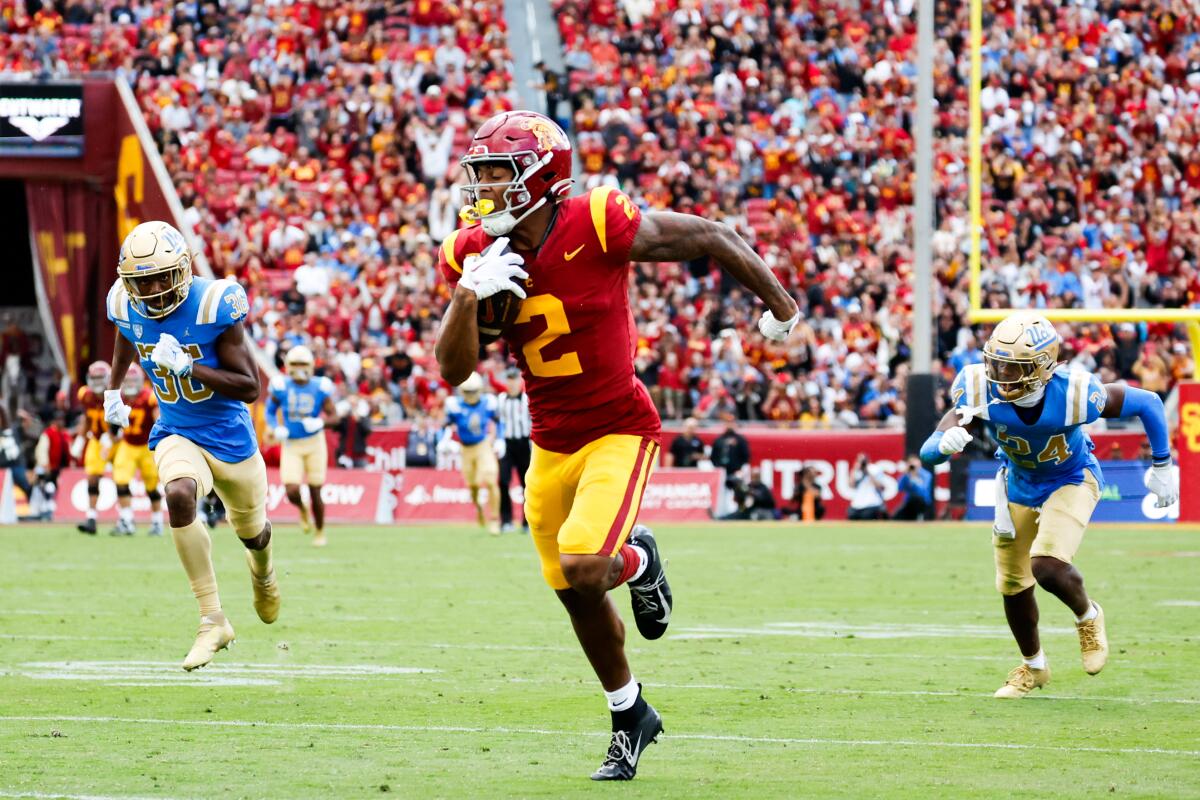
6 feet 2, 208 pounds, USC, Round 7, Pick 225
Notable: He is the son of Pro Football Hall of Famer Jerry Rice.
Last season: Rice caught 45 passes for 791 yards and 12 touchdowns playing with Caleb Williams, the No. 1 pick of the draft. Rice finished his four-year college career with 21 touchdown receptions.
Why the Chargers drafted him: With so much emphasis this offseason on improving the run game, the Chargers still employ Justin Herbert and need to lean into his potential. Rice joins Ladd McConkey, who was taken in the second round Friday, as wide receivers selected by general manager Joe Hortiz in his first Chargers draft. Entering Thursday, the team had only four receivers on its roster. Rice could provide depth while still developing his game.
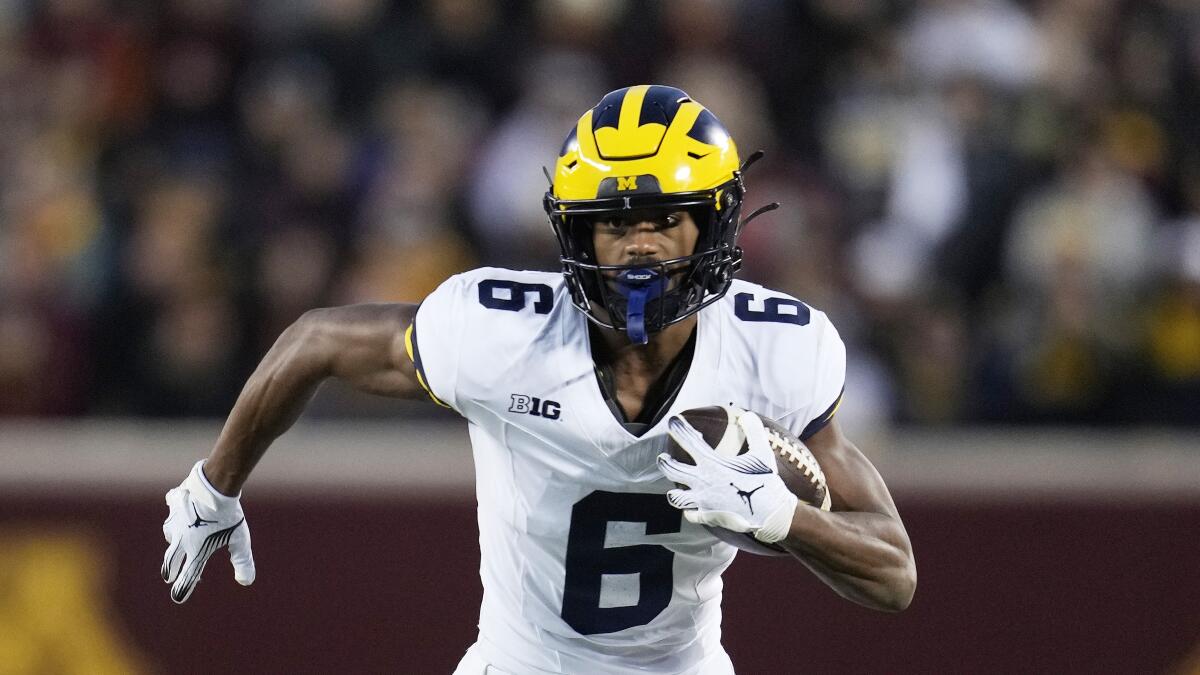
6 feet 3, 212 pounds, Michigan, Round 7, Pick 253
Notable: He earned Academic All-Big Ten honors three times and graduated with a degree in communications and media.
Last season: In his fifth year at Michigan, Johnson caught 47 passes for 604 yards and a touchdown. He finished his college career with 2,045 yards receiving and 14 scores.
Why the Chargers drafted him: With their final two picks, the Chargers continued to fill their thinnest position group entering the draft. Johnson brings a bigger frame and plenty of experience. He appeared in 61 games at Michigan, the third most in program history. He also led the Wolverines in touchdown receptions in 2022 with six. Coach Jim Harbaugh’s familiarity with Johnson from college no doubt made this an easier selection for the Chargers.
Go beyond the scoreboard
Get the latest on L.A.'s teams in the daily Sports Report newsletter.
You may occasionally receive promotional content from the Los Angeles Times.